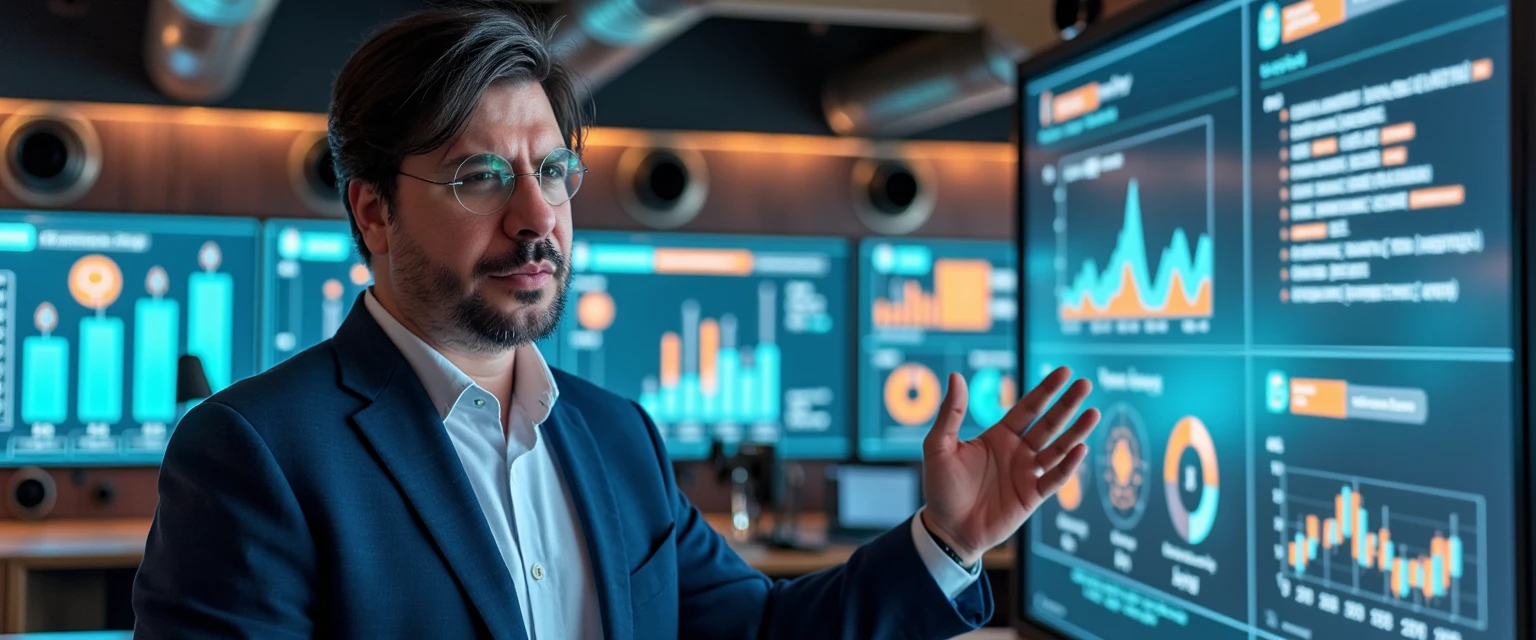PT Uses AI to Create Campaign Videos While 50% of Brazilian Companies Have Yet to Adopt the Technology — The Innovation Paradox
July 3, 2025 | by Matos AI

We have just witnessed a historic milestone in Brazil: the first major political confrontation where artificial intelligence played a central role in the construction of narratives. Meanwhile, a study by TOTVS reveals that half of Brazilian companies still do not use AI structurally. This contradiction exposes a fascinating paradox about how innovation spreads in our society.
When Politics Becomes More Technological Than Business
THE PT has launched an offensive on social media using AI-produced videos as part of the pre-campaign strategy. Around 270 influencers participated in a virtual meeting where strategies to strengthen Lula on social media were discussed, with the videos produced by the company Urissanê.
At the same time, Marcelo Senise, president of the Brazilian Institute for the Regulation of Artificial Intelligence, analyzes how this was “the first major political confrontation in Brazil in which artificial intelligence played a central role in the construction of narratives”.
Join my WhatsApp groups! Daily updates with the most relevant news in the AI world and a vibrant community!
- AI for Business: focused on business and strategy.
- AI Builders: with a more technical and hands-on approach.
AI has been used to amplify, refine and personalize campaigns beyond the capabilities of traditional marketers, combining real-time monitoring of voters’ moods with the creation of customized emotional content. This is the future of political communication knocking on our door.
The Business Reality: Half of Companies Still in the Comfort Zone
While politics embraces AI, the corporate world is still hesitant. A TOTVS study with 194 Brazilian companies reveals that 50% still do not use artificial intelligence in a structured way. Among the user companies, 58% are in the early stage, 34% in the intermediate stage, and only 8% with advanced adoption.
The numbers are revealing:
- 33% uses AI for content generation
- 29% for creating visual elements
- 21% for cybersecurity
- 20% for chatbots
What catches my attention the most is that 80% of companies see AI as poorly aligned with strategic goals, and only 7% measure return on investment. This is not just a technology problem — it is a problem of strategic vision.
The Real Barriers to Adoption
The main barriers revealed by the study are:
- Security (36%) — A legitimate concern, but one that can be addressed
- Lack of qualified professionals (35%) — The biggest bottleneck in the market
- Difficulty in measuring results (32%) — Reflection of the lack of a clear strategy
In my experience helping startups and companies implement AI, I see that these barriers are symptoms of a deeper problem: the lack of a structured approach to digital transformation.
The Dark Side: When AI Becomes a Tool of Crime
We cannot ignore the risks. AI has been driving financial scams and fraud in Brazil. In 2024, losses from scams rose by 17%, reaching R$10.1 billion, according to Febraban.
AI-powered tools help criminals create more persuasive emails and messages without obvious errors and generate realistic fake images. Deepfakes and voice imitations have also been improved. The incidence of voice-based scams grew by 422% in Latin America in 2024.
Even more worrying: a lawyer was fined 20 minimum wages for presenting fake laws and case law generated by AI. The case highlights the urgency of rigorous supervision of AI-generated content in sensitive areas.
Success Stories: AI That Doesn't Replace, But Enhances
Not everything is a challenge. AI Alzira, developed by Guia de Motéis, is transforming service in around 200 motels in Brazil, automating functions that are equivalent to the work of almost a thousand human attendants, without eliminating jobs.
This case exemplifies what I believe to be the future of AI: not the brutal replacement of workers, but the enhancement of human capabilities. Alzira offers 24/7 humanized service, and owners report increased bookings and improved operational efficiency.
It is interesting to note that A Brazilian comedian went viral after imitating bizarre AI-generated videos, accumulating more than 15 million views. Will Forlan quips: “We’re already taking the work away from AI.” This creative inversion shows how human intelligence can find value even in the imperfections of technology.
The New Workplace: Bots in Meetings
AI bots are dominating virtual meetings. One reported case showed that, in a Zoom call, less than half of the participants were human, with bots responsible for taking notes, transcribing and summarizing conversations.
Zoom CEO Eric Yuan envisions a future with “digital twins” interacting on users’ behalf. This raises fundamental questions about the future of human interactions in the workplace.
The Detection Challenge: When We Can No Longer Tell the Difference
BBC reports on the growing difficulties of distinguishing between human-created and AI-created texts. Professor Adriano Machado, from UFMG, illustrates how the advancement of natural language models eliminates clues used for identification.
Experts point out that the distinction between human and AI content is likely to dissolve, posing ethical and educational challenges. This forces us to rethink not only how we detect AI, but how we define authenticity and originality.
The Future of Education Under Debate
The New York Times Questions Whether Programming Is Still Worth It in the Age of AI. Experts agree that fundamentals of programming, algorithms, and logic remain essential to understanding and applying AI intelligently.
The challenge is to prepare professionals capable of transcending the domain of code, considering the social and organizational impacts of technology. This is exactly what I have been advocating throughout my career: the need for education that is more connected to the realities of the future of work.
Three Key Lessons From This Moment
1. Innovation Doesn’t Wait for Everyone
While 501,000 companies have yet to adopt AI, political parties are already using it to influence elections. Criminals are exploiting it for sophisticated scams. Technology doesn’t wait for us to prepare — it advances regardless of our readiness.
2. Ethical Use Defines Success
The difference between the success of AI Alzira in motels and the failure of the lawyer who invented laws lies in the ethical approach. Transparency, accountability, and human oversight are key to lasting success.
3. Preparation Goes Beyond Technology
Companies that fail to measure the ROI of AI or fail to see it as strategic have a vision problem, not a technology problem. The future belongs to those who can imagine new business models, not just implement new tools.
What This Means for Your Business
We are living at a historic turning point. AI is no longer a promise of the future — it is a reality of the present that is redefining politics, business, and society.
For companies that have yet to adopt AI, the risk is not just competitive—it’s existential. For those that have already started, the opportunity is to set the ethical and practical standards for the industry.
In over 25 years of supporting startups and companies in digital transformation, I’ve learned that the moments of greatest change are also the moments of greatest opportunity. The question is not whether AI will impact your business, but how you will lead that transformation.
In my mentoring, I help companies navigate these very questions: how to implement AI strategically, ethically, and profitably. How to turn technological uncertainty into a competitive advantage. How to prepare teams for the future of work that is already here.
Because, at the end of the day, AI is just a tool. What really matters is the human intelligence to use it with purpose, ethics and vision for the future.
✨Did you like it? You can sign up to receive 10K Digital's newsletters in your email, curated by me, with the best content about AI and business.
➡️ Join the 10K Community here
RELATED POSTS
View all



